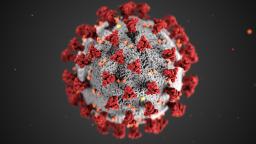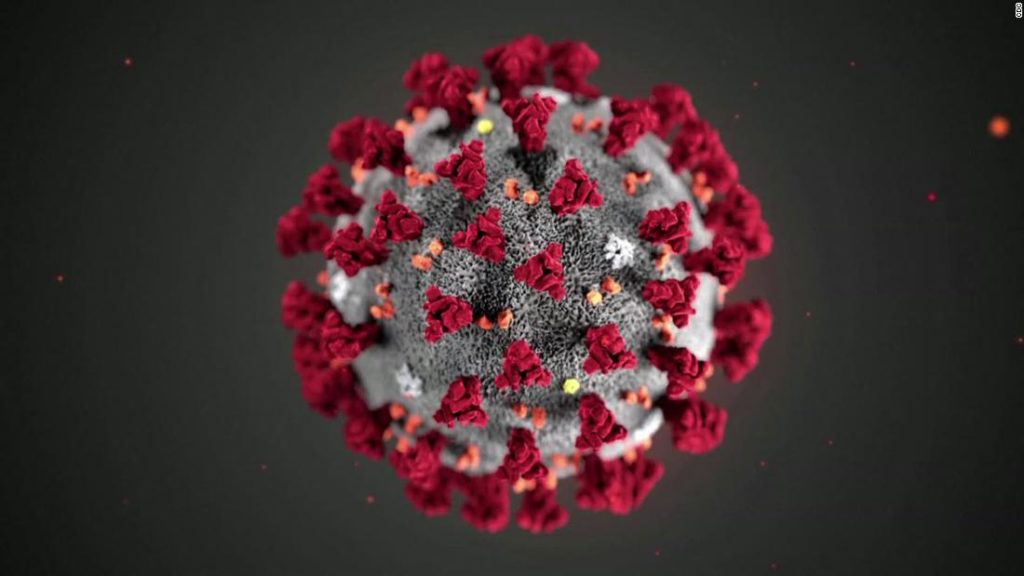
While most countries followed EU guidance on prioritizing the elderly, health care workers and vulnerable populations first, the Czech Republic took a different approach — administering its first dose to Prime Minister Andrej Babiš.
But little could subdue the optimistic mood. German pilot Samy Kramer used his flight path to trace a giant syringe in the sky ahead of the vaccination campaign’s launch. “There are still relatively many people opposing the vaccination and my action may be a reminder for them to think about the topic, to get things moving,” Kramer told Reuters, following his one-hour, 44-minute flight over southern Germany.
YOU ASKED. WE ANSWERED
Q: Should I take the vaccine if I have underlying conditions?
A: The US Centers for Disease Control and Prevention (CDC) on Saturday posted new guidance for people with certain underlying medical conditions, who are at increased risk of more severe Covid-19.
- The guidance addresses people with weakened immune systems, people with autoimmune conditions and those who have previously had Guillain-Barre syndrome and Bell’s palsy.
- All of these groups “may receive an mRNA Covid-19 vaccine” according to the recommendations, provided they have not had a severe allergic reaction to any of the ingredients in the vaccine.
- People with HIV and those with weakened immune systems due to other illnesses or medication should be aware of “limited safety data” on the use of Covid-19 vaccinations in those populations, and that they may experience a weakened immune response to a vaccine.
WHAT’S IMPORTANT TODAY
Trump signs coronavirus relief and funding bill into law after lengthy delay
The delayed signature came after he blindsided lawmakers last week, criticizing the size of the stimulus checks — negotiated by his own administration.
Journalist who documented Wuhan coronavirus outbreak jailed
While Zhang is one of a number of independent reporters who have been detained or disappeared in China since the beginning of the pandemic, she is the first citizen journalist known to have been sentenced for her role in reporting on the coronavirus pandemic.
Oxford/AstraZeneca vaccine could get UK approval in days
AstraZeneca’s Covid-19 vaccine is set to receive UK regulatory approval within days and could be rolled out by January 4, British media reported on Sunday. It comes after UK Health Secretary Matt Hancock said the company had submitted its “full data package” for the vaccine to the Medicines and Healthcare products Regulatory Agency (MHRA) for review.
ON OUR RADAR
- 2020 was a tumultuous year for most people, and that’s no less true for Queen Elizabeth II. That said, the pandemic has given her renewed relevance.
- Israel entered its third lockdown on Sunday as coronavirus cases continue to climb.
- Japan will ban foreign nationals from entering the country from today through to the end of January after several cases of the new Covid-19 variant were recorded there.
- In Europe — home to some of the richest countries and most generous social safety nets — concerns around hunger and deprivation existed long before the Covid-19 crisis. And when the pandemic hit, things got even worse.
- A Boy Scout troop helped create a ‘hug booth’ for nursing home residents, allowing them to embrace visitors without touching at all.
TOP TIP
Vaccine passports may be on the horizon
Now that coronavirus vaccines are starting to roll out in the US and abroad, many people may be dreaming of the day when they can travel, shop and go to the movies again. But in order to do those activities, you may eventually need something in addition to the vaccine: A vaccine passport application.
TODAY’S PODCAST
“When I look back on this year, I’m going to remember the lives that we lost … I’m going to carry the lessons we learned at their expense for the rest of my career.” — CNN’s Chief Medical Correspondent Dr. Sanjay Gupta
You may also like
-
UK coronavirus variant has been reported in 86 countries, WHO says
-
NASA technology can help save whale sharks says Australian marine biologist and ECOCEAN founder, Brad Norman
-
California Twentynine Palms: Explosives are missing from the nation’s largest Marine Corps base and an investigation is underway
-
Trump unhappy with his impeachment attorney’s performance, sources say
-
Lunar New Year 2021: Ushering in the Year of the Ox

